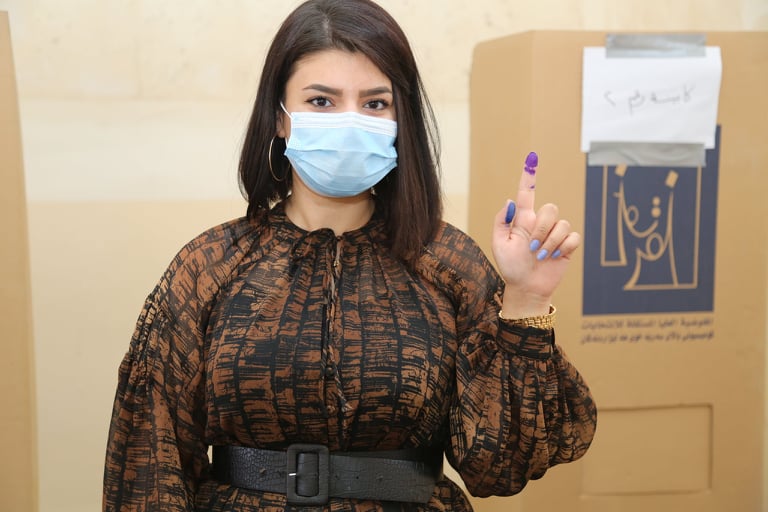Despite the low turnout and the blow to pro-Iran fractions in the general elections on October 1oth, Iraqi women candidates succeeded in passing women quota for the first time in the history of Iraq.
Council of ministers said on Tuesday that out of the 97 seats women candidates gained, 14 of it are behind quota for women in the parliament.
According to the new electoral system, the 19 provinces of Iraq has been divided into 83 constituencies and a women to represent each constituency.
The preliminary results of the general elections by the Independent High Electoral Commission IHEC, a body that oversights elections in Iraq, , 97 women made to the parliament and 57 of them were vying their men competitors, without need for quota.
The electoral law in Iraq states that 25% of the House of Representatives should be women. It also books nine seats for the ethnic and religious minorities, five seats go for the Christian community, and a seat for each of the Ezidis, Shabak, Sabean Mandeans and Faili Kurds.
The vote was brought forward by six months in response to a popular uprising in the capital Baghdad's Tahrir Square and southern provinces late 2019 when tens of thousands of Iraqis, mainly unemployed young people took to the streets to protest endemic corruption, poor services and rising unemployment.
Almost 24 million Iraqis were eligible to vote yet only 41% cast ballots in Iraq's early general elections to vote for 3,226 candidates vying for 329 parliamentary seats, out of which 951 were women.
From 1920, up to 1980, Iraqi women had no right to take a seat in the parliament. Following the ousting of Saddam regime in 2003, according to the constitution and quota for women, 25% of parliamentary seats were allocated for women.
In the first round of the Iraqi parliament in 2005, women occupied 75 seats out of 275. Five years later, women quota was topped to 83 out of 325. In 2014 elections, out of 83 women, 22 made it to the parliament per the votes they got without resorting to women quota. In the last round of 2018, it has reached 84 seats.
Nissan al-Salihi, candidate of Imtidad, a movement representing October 2019 protestors, in Nasiriya, Dhiqar southern province, has made almost 23,000 votes and was ranked as the first among women candidates made it to the parliament.





